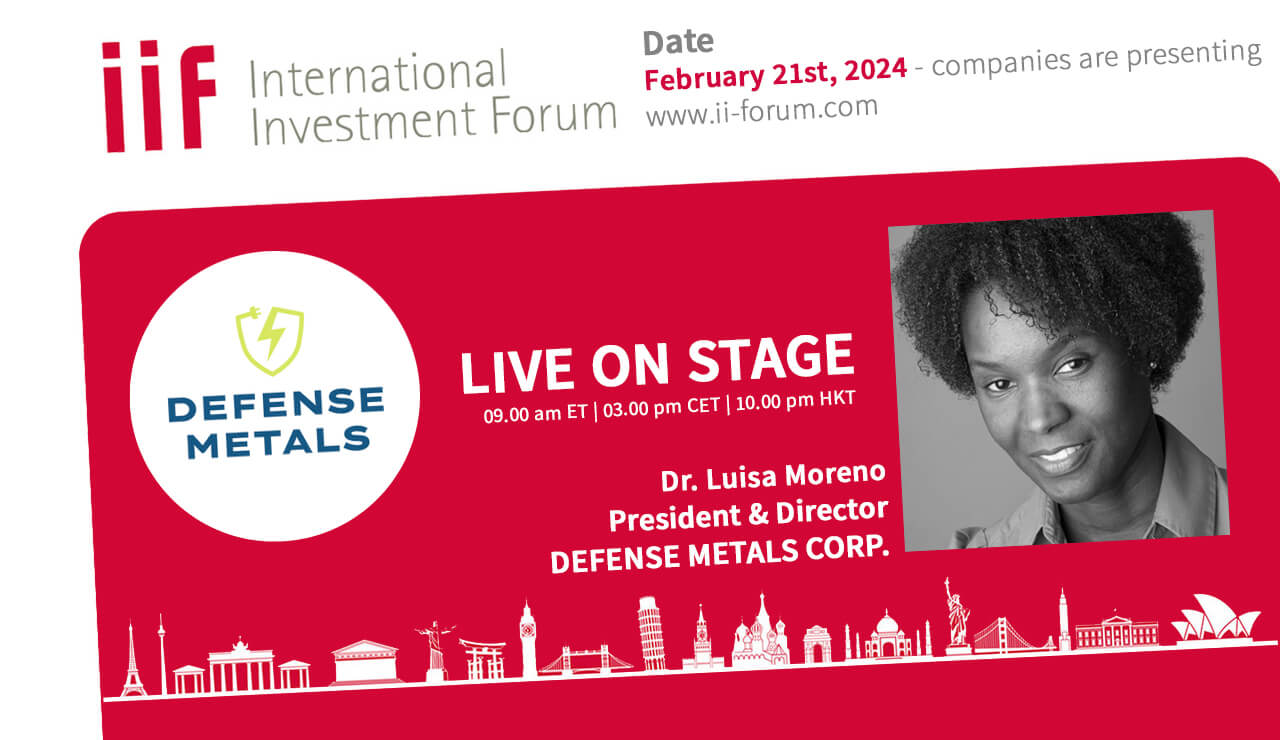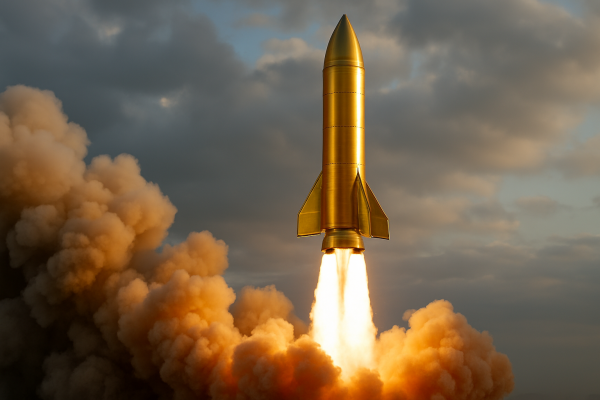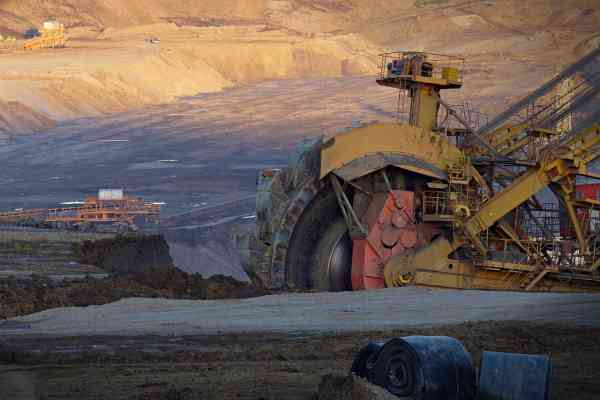February 19th, 2024 | 07:15 CET
Defense Metals, BYD, Rheinmetall - No high-tech technology without this resource
In today's technology-driven world, rare earths have become indispensable building blocks for modern high-tech applications. From high-performance electric vehicles, which promise environmentally conscious mobility, to sophisticated equipment in the defense industry, whose importance increases in times of geopolitical tensions - rare earths are everywhere. These elements, often invisible yet crucial, enable the functionality and efficiency of devices and systems used in our daily lives, such as smartphones. Rare earths have become a silent backbone of technological innovation and security policy, whose availability and control can play a decisive role in economic success and strategic superiority.
time to read: 5 minutes
|
Author:
Armin Schulz
ISIN:
DEFENSE METALS CORP. | CA2446331035 , BYD CO. LTD H YC 1 | CNE100000296 , RHEINMETALL AG | DE0007030009
Table of contents:

"[...] Nickel, therefore, benefits twice: firstly from its growing importance within batteries and secondly from the generally growing demand for such storage. [...]" Terry Lynch, CEO, Power Nickel
Author
Armin Schulz
Born in Mönchengladbach, he studied business administration in the Netherlands. In the course of his studies he came into contact with the stock exchange for the first time. He has more than 25 years of experience in stock market business.
Tag cloud
Shares cloud
Defense Metals - Preliminary feasibility study nearing completion
In addition to the automotive and defense industries, rare earths are used in many other sectors, such as agriculture, aerospace, chemicals, healthcare and many more. As there is currently a high level of dependence on China, the US and Europe are trying to find alternatives. One of these is Defense Metals, which is advancing the Wicheeda Rare Earth project in British Columbia. The property covers 8,301 hectares and has a NI 43-101 mineral resource estimate that includes 6.4 million tons of measured resources averaging 2.86% rare earth oxides (TREO), 27.8 million tons of indicated resources averaging 1.84% TREO and 11.1 million tons of inferred resources averaging 1.02% TREO.
The required metallurgical studies for the Pre-Feasibility Study (PFS) have been completed, with a mineral concentrate containing 50% TREO and an extraction rate of 80% produced in the pilot plant for the first eight years of mine-life. Further testing in a hydrometallurgical pilot plant demonstrated that an acid beneficiation process can extract approximately 90% TREO to a mixed rare earth carbonate product. The PFS flowsheets and equipment list have been prepared, and bids are already being solicited. The geotechnical, geochemical and environmental studies have also been completed. The open-cast mine planning is also well-advanced. All tasks in connection with the PFS are running at full speed, and the report is expected to be completed in the second quarter.
In the meantime, 11 rare earth metal precipitate samples have already been sent to potential partners and customers. In mid-January, the Company announced a strategic equity partnership and co-design agreement with the McLeod Lake Indian Band (MLIB). MLIB holds approximately 2.6 million shares in the Company. The agreement allows both parties to pursue a joint planning approach and drive the project forward together. MLIB's investment has brought around CAD 740,000 into the coffers of Defense Metals. Anyone interested in learning more about the Company should make a note of February 21. when Dr Luisa Moreno will present the Company at the 10th International Investment Forum and answer questions from shareholders live. The share price has risen by around 17% since the beginning of the year and is currently trading at CAD 0.235.

BYD - Battery cooperation with CATL and others
Electromobility is unthinkable without rare earths. These elements, fundamental for their extraordinary magnetic properties, are crucial for the performance of electric motors and contribute significantly to increasing the efficiency and energy density of modern electric vehicles. From improving battery life to increasing range, rare earths are key components that significantly influence the functionality and attractiveness of electric mobility. As BYD is based in China, the supply of this critical raw material is guaranteed.
The Chinese electric vehicle manufacturer is the No. 1 player in the largest market for electric vehicles. One of the reasons for this lies in the Blade battery, which is currently regarded as a leader in this field. Even Tesla is said to have already installed these batteries. The vehicle battery is a crucial competitive advantage. Considering that the future of batteries could lie in solid-state batteries, BYD has joined forces with CATL and others to maintain this lead in solid-state batteries. This type of battery promises higher energy density, greater safety, faster charging, and longer life and operation in extreme temperatures. Whoever wins this race will have all the selling points on their side.
2023 was a good year for BYD. According to preliminary figures, the electric vehicle manufacturer recorded a profit increase of 75 to 87% and expects a net profit of EUR 3.8 to 4 billion. Analysts had expected slightly more. In the current year, internationalization is to be driven forward. The Chinese plan to build a factory in Mexico to gain a foothold in the US. After the share was pushed down to almost EUR 20 at the beginning of February, it recovered and closed at EUR 22.65 last week.
Rheinmetall - Expanding capacities
In today's world, where geopolitical tensions and the need for national security are ever-present, rare earths play a key role within the defense industry. This group of elements, characterized by their unique magnetic, chemical and conductivity properties, is essential for the manufacture of a wide range of advanced military technologies. From precision-guided munitions systems and stealth technology to communications satellites and radar systems, rare earths enable the functionality and efficiency that meet modern defense requirements. This is likely also true for Rheinmetall, which is currently inundated with orders.
In February, the German Armed Forces ordered ammunition worth EUR 30 million. The British Army ordered 500 HX trucks for EUR 330 million. In January, the Düsseldorf-based company was able to announce seven major orders. To cope with the flood of orders, the Company is trying to expand its capacities. At the end of January, the Company announced the expansion of its ammunition plant in Várpalota, Hungary, to increase the production of medium and large caliber ammunition and explosives. In Romania, Rheinmetall acquired a majority stake in Automecanica Mediaș at the beginning of February. The Company is thus expanding its product portfolio in military vehicle construction.
Rheinmetall is also building a new ammunition factory in Unterlüß to strengthen national security provisions and ensure independence in the supply of ammunition. German Chancellor Olaf Scholz and the Prime Minister of Denmark attended the ground-breaking ceremony. Following the security agreement with Ukraine, the Federal Chancellor is thus demonstrating his commitment to improving the position of the arms industry in Germany. Positive news for the defense industry is coming from all sides. The Düsseldorf-based company's shares have quadrupled since the Ukraine conflict and are currently trading at EUR 388.20.
Rare earths are a critical resource without which many high-tech applications would not exist today. Defense Metals has the potential to meet at least part of the demand from North America and reduce dependence on China. BYD does not have a supply problem in this area. However, the Company, along with CATL, NIO and other companies, aims to collaborate on the development of solid-state batteries to advance the next generation of electric vehicles. The high demand for defense equipment has increased the demand for rare earths in this sector. Rheinmetall is currently overwhelmed with orders and will likely double its turnover by 2026.
Conflict of interest
Pursuant to §85 of the German Securities Trading Act (WpHG), we point out that Apaton Finance GmbH as well as partners, authors or employees of Apaton Finance GmbH (hereinafter referred to as "Relevant Persons") may hold shares or other financial instruments of the aforementioned companies in the future or may bet on rising or falling prices and thus a conflict of interest may arise in the future. The Relevant Persons reserve the right to buy or sell shares or other financial instruments of the Company at any time (hereinafter each a "Transaction"). Transactions may, under certain circumstances, influence the respective price of the shares or other financial instruments of the Company.
In addition, Apaton Finance GmbH is active in the context of the preparation and publication of the reporting in paid contractual relationships.
For this reason, there is a concrete conflict of interest.
The above information on existing conflicts of interest applies to all types and forms of publication used by Apaton Finance GmbH for publications on companies.
Risk notice
Apaton Finance GmbH offers editors, agencies and companies the opportunity to publish commentaries, interviews, summaries, news and the like on news.financial. These contents are exclusively for the information of the readers and do not represent any call to action or recommendations, neither explicitly nor implicitly they are to be understood as an assurance of possible price developments. The contents do not replace individual expert investment advice and do not constitute an offer to sell the discussed share(s) or other financial instruments, nor an invitation to buy or sell such.
The content is expressly not a financial analysis, but a journalistic or advertising text. Readers or users who make investment decisions or carry out transactions on the basis of the information provided here do so entirely at their own risk. No contractual relationship is established between Apaton Finance GmbH and its readers or the users of its offers, as our information only refers to the company and not to the investment decision of the reader or user.
The acquisition of financial instruments involves high risks, which can lead to the total loss of the invested capital. The information published by Apaton Finance GmbH and its authors is based on careful research. Nevertheless, no liability is assumed for financial losses or a content-related guarantee for the topicality, correctness, appropriateness and completeness of the content provided here. Please also note our Terms of use.




